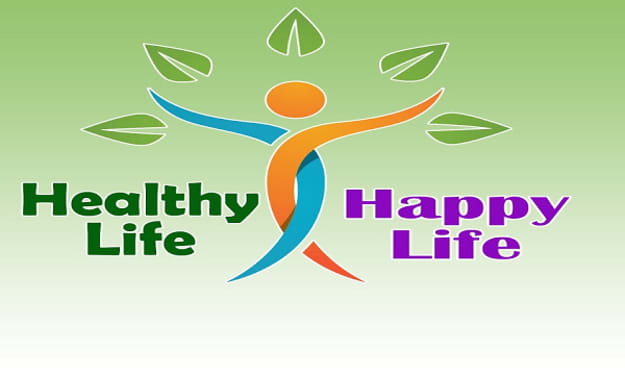Weight loss to lower Cholesterol..
It's easy .!

Weight Loss Strategies
Weight loss is a topic that has garnered significant attention in recent years due to its association with improved health and well-being. For many individuals, shedding excess pounds can be a transformative journey that not only enhances physical appearance but also reduces the risk of various chronic diseases, including heart disease, diabetes, and high cholesterol levels. In this section, we will explore various effective weight loss strategies that can help individuals achieve their goals and improve their overall health.
1. Creating a Caloric Deficit: The fundamental principle behind weight loss is to create a caloric deficit, where the number of calories consumed is less than the number of calories expended by the body. This deficit prompts the body to utilize stored fat for energy, resulting in weight loss. To achieve this, individuals can track their daily caloric intake and ensure it is lower than their total daily energy expenditure (TDEE), which includes both basal metabolic rate (BMR) and physical activity levels.
2. Balanced and Nutritious Diet: Adopting a balanced and nutritious diet is crucial for sustainable weight loss. A diet rich in whole foods, such as fruits, vegetables, whole grains, lean proteins, and healthy fats, provides essential nutrients while keeping calorie intake in check. Avoiding processed foods, sugary beverages, and excessive amounts of refined carbohydrates can prevent spikes in blood sugar levels and support weight loss efforts.
3. Portion Control: Even when consuming healthy foods, portion control plays a vital role in weight loss. Overeating, even on nutritious foods, can lead to excess caloric intake, hindering progress. Learning to recognize proper portion sizes and practicing mindful eating can help individuals manage their weight effectively.
4. Regular Physical Activity: Incorporating regular exercise into a weight loss plan can significantly accelerate results. Engaging in a combination of aerobic exercises (e.g., running, cycling, swimming) and strength training (e.g., weight lifting, bodyweight exercises) not only burns calories during workouts but also increases metabolism, leading to more efficient fat burning even at rest.
5. Setting Realistic Goals: Setting realistic and achievable weight loss goals is essential for maintaining motivation and preventing frustration. Aim for gradual weight loss, typically around 0.5 to 1 kilogram (1 to 2 pounds) per week, as this approach is more sustainable and healthier than crash diets or extreme calorie restrictions.
6. Tracking Progress: Monitoring progress is essential to stay on track and make necessary adjustments to the weight loss plan. Keeping a journal of food intake, exercise routines, and changes in weight and body measurements can provide valuable insights into what works best for individual weight loss journeys.
7. Accountability and Support: Seeking support from friends, family, or joining a weight loss community can provide valuable encouragement and accountability. Sharing experiences, tips, and challenges with like-minded individuals can foster a sense of camaraderie and keep individuals motivated throughout their weight loss journey.
8. Sleep and Stress Management: Quality sleep and stress management are often overlooked aspects of weight loss. Poor sleep can disrupt hormonal balance and increase appetite, while chronic stress can lead to emotional eating. Prioritizing restful sleep and adopting stress-reduction techniques, such as mindfulness meditation or yoga, can support weight loss efforts.
READY TO SHED THOSE EXTRA POUNDS? OUR WEIGHT LOSS PRODUCT CAN HELP – ORDER TODAY..! https://tinyurl.com/yc8bwv6x

Cholesterol Management
Cholesterol is a type of lipid or fat that is essential for the proper functioning of the human body. It plays a critical role in building cell membranes, producing hormones, and aiding in the digestion of fats. However, an imbalance in cholesterol levels, particularly high levels of LDL (low-density lipoprotein) cholesterol and low levels of HDL (high-density lipoprotein) cholesterol, can have detrimental effects on cardiovascular health. In this section, we will explore the importance of cholesterol management, the impact of cholesterol on health, and how weight loss can contribute to lowering cholesterol levels.
1. Understanding Cholesterol:
Cholesterol is transported in the bloodstream by lipoproteins, which are composed of fats and proteins. LDL cholesterol, often referred to as "bad" cholesterol, carries cholesterol from the liver to the cells, where it can accumulate and contribute to the formation of plaques in the arteries. On the other hand, HDL cholesterol, known as "good" cholesterol, helps transport excess cholesterol back to the liver for processing and removal from the body.
2. Cholesterol and Cardiovascular Health:
High levels of LDL cholesterol are associated with atherosclerosis, a condition in which plaques build up in the arterial walls, narrowing and stiffening the arteries. This can reduce blood flow to the heart and other organs, increasing the risk of heart attacks, strokes, and other cardiovascular problems. Conversely, higher levels of HDL cholesterol are linked to a reduced risk of heart disease, as HDL helps remove excess cholesterol from the arteries, promoting cardiovascular health.
3. Impact of Weight Loss on Cholesterol Levels:
Weight loss can have a significant impact on cholesterol levels, especially for individuals who are overweight or obese. Losing excess weight, particularly abdominal fat, has been shown to reduce LDL cholesterol and triglyceride levels, while also increasing HDL cholesterol levels. This improvement in cholesterol profile contributes to better heart health and a decreased risk of cardiovascular diseases.
4. Effect of Diet on Cholesterol:
Weight loss often involves adopting a healthier diet, which can directly influence cholesterol levels. Diets that are high in saturated and trans fats can raise LDL cholesterol levels, while diets rich in unsaturated fats, such as those found in nuts, avocados, and olive oil, can have a positive effect on cholesterol. Incorporating soluble fiber from sources like oats, fruits, and legumes can also help lower LDL cholesterol levels by binding to cholesterol and aiding in its elimination from the body.
5. Physical Activity and Cholesterol:
Regular physical activity not only contributes to weight loss but also independently affects cholesterol levels. Exercise has been shown to increase HDL cholesterol, which helps remove excess cholesterol from the bloodstream. Additionally, physical activity can enhance the efficiency of enzymes responsible for breaking down LDL cholesterol, further promoting better cholesterol management.
6. Lifestyle Changes and Cholesterol Management:
Aside from weight loss, adopting other heart-healthy lifestyle changes can complement cholesterol management efforts. Quitting smoking, reducing alcohol intake, and managing stress are important factors in supporting cardiovascular health and optimizing cholesterol levels.
7. Monitoring Cholesterol Levels:
Regular cholesterol screening is essential for individuals seeking to manage their cholesterol levels, especially during weight loss journeys. Tracking cholesterol levels allows individuals to assess the effectiveness of their lifestyle changes and make necessary adjustments as needed.
READY TO SHED THOSE EXTRA POUNDS? OUR WEIGHT LOSS PRODUCT CAN HELP – ORDER TODAY..! https://tinyurl.com/yc8bwv6x
In conclusion, the connection between weight loss and cholesterol management is undeniable. Shedding excess weight through balanced nutrition, portion control, regular exercise, and healthy lifestyle changes can lead to improvements in cholesterol levels. Lowering LDL cholesterol while increasing HDL cholesterol reduces the risk of cardiovascular diseases, promoting overall heart health. Emphasizing these dual goals of weight loss and cholesterol management can empower individuals to make positive and sustainable changes, ultimately enhancing their well-being and quality of life. Remember, seeking professional guidance and support can provide valuable insights tailored to individual needs on this transformative journey to better health.






Comments
There are no comments for this story
Be the first to respond and start the conversation.